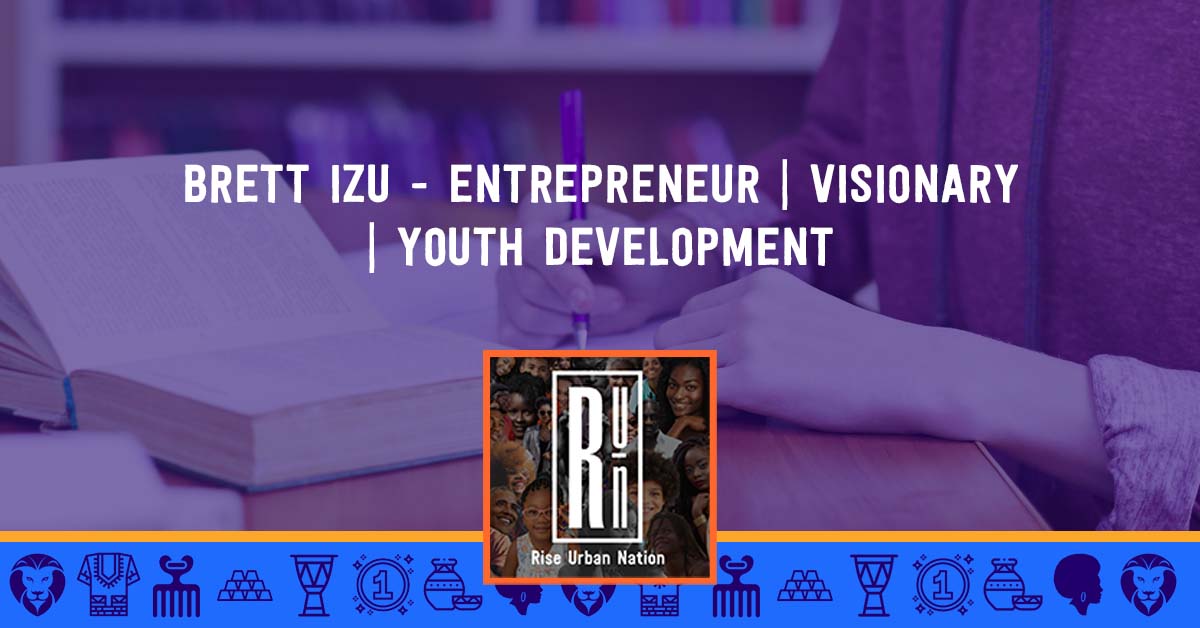What Black Leaders Want You to Know About Entrepreneurship
Entrepreneurship is not an easy path, but for people of color, starting a business can be especially difficult. Historically, Black people have faced many roadblocks whenever they reached for financial empowerment. Despite all these problems, there has never been a better time for Black people to become entrepreneurs.
Black leaders in business that have built successful enterprises are excited by the increasing number of Black entrepreneurs. They are willing to share the wisdom they have gained from triumphing over their business battles.
If you are an aspiring Black entrepreneur, you could save a lot of time and money by standing on the shoulders of these giants.
Keep reading to learn some of the most important things Black business leaders want you to know about entrepreneurship.
1. Feel the Fear But Start Your Business Anyway
For years, Black people have faced a lot of barriers to ascending the corporate ladder. This is why entrepreneurship has always been a great avenue to make our way in the world. This is evidenced by the fact that in 2021 there was a 38 percent increase in the number of Black entrepreneurs after many people lost their jobs due to COVID.
Even so, Black entrepreneurship is still lower than that of other demographics. In 2019, only 2.3 percent of all American businesses were Black-owned. This is concerning when you consider that the fastest way to become
financially independent and create generational wealth is to start a business.
This is why many Black leaders want you to start your own business. The more Black-owned businesses we have, the wealthier the Black community will get. Black-owned businesses can hire disenfranchised members of the community.
Their success can also inspire other Black people to start their businesses. A strong community of Black entrepreneurs can also help influence government policies in a way that makes life better for Black Americans.
2. Learn and Know Your Numbers
If there is one skill entrepreneurs cannot thrive without, its financial literacy. You may hire an accountant to manage your financials, but you must have a general idea about the financial health of your business.
Many Black leaders have fallen into bankruptcy or financial hardship due to unscrupulous accountants that swindled them of their hard-earned money. For example, Steve Harvey had to pay the IRS $20 Million in back taxes and late fines. For years his accountant had been stealing the money intended for his tax payments. Knowing your numbers will allow you to identify red flags in your business’s finances and prevent your staff from stealing from
you.
Black leaders also want entrepreneurs to know their business numbers like they know the back of their hands. A business is only viable if its sales exceed its expenses. Entrepreneurs often get sidetracked by their business idea and other glamorized aspects of running a business.
But there is a reason why the first thing investors ask for is your numbers. Knowing your numbers will keep you focused on the important things that will keep your business operational. It will also give potential investors the confidence that you know what you are doing.
So, what are the numbers we are talking about? Well, make sure you know your annual revenue, gross profit percentage, setup costs, operating costs, breakeven point, and payback period.
3. Be Yourself Unapologetically
One of the benefits of being part of a minority group is your uniqueness. Do not try to blend in with the rest of the business crowd as doing so will dilute your power. No one else can be like you, so guard your authenticity and show off your real self to the world.
But don’t confuse this advice as a ticket to behave unprofessionally. There is a difference between being yourself and showing up late for meetings or being loud at inappropriate times. Observe business etiquette but maintain and display your sense of self and culture.
4. Master Your Emotions
Nothing will push you out of your comfort zone as much as entrepreneurship. Running a successful business will force you to do things that scare you. For instance, if you are introverted you may have to spend most of your time networking, pitching to investors, or selling your product.
If you hate the limelight, you may find yourself having to toot your own horn to market your business. You may hate numbers but be forced to learn financial management.
On top of operating outside their comfort zone, Black entrepreneurs may also have to deal with humiliating encounters stemming from racism or sexism. All these stressors and microaggressions will take a toll on your mental health, so you must strengthen your emotional intelligence. Many people get triggered by such circumstances and become verbally or physically violent which costs them lucrative contracts or important business connections.
Emotional intelligence is the ability to recognize, use and manage your emotions in a way that allows you to live your best life and achieve your goals. Those with high emotional intelligence can also recognize the emotions of those around them to their advantage.
Mastering your emotions will help you react appropriately to stressful situations at work. You will also be able to manage your team and clients better. The Harvard business review estimates that emotional intelligence accounts for more than 90% of what sets apart high-performing leaders from their average peers.
5. Push for Equality
The Black community trails behind other racial groups when it comes to wealth. One reason for this is unequal access to wealth creation opportunities. For instance, Black women earn 63 percent of what white men earn for similar jobs.
Can you imagine how much more wealth the community would have if women got paid their full 100 percent? Black leaders want entrepreneurs to do their part to ensure that all their employees get equal treatment.
If you're in a position that can help empower Black people, you should take your role seriously. For instance, bankers can help Black entrepreneurs access capital and funding. Real estate agents can also help reform their sector to reduce racial inequality in housing so that more Black people own homes.
6. Give or Get Exposure
The future of Black America is in the hands of our young adults. But they can’t be everything they can be if they don’t know of the possibilities open to them. Successful Black entrepreneurs can help mentor young adults to show them all the possibilities they have in the business world.
Exposure to excellent role models does wonders for children and young adults. Successful entrepreneurs can help mold the mindset of the younger generation.
Black entrepreneurs also need to be visible because representation matters. Children and young adults should see people that look like them succeeding in certain industries or as entrepreneurs. This can help them to be more confident to pursue similar goals.
7. Support Black-Owned Businesses
Black entrepreneurs need our support to grow. This is especially true in their start-up phase. Established Black business owners can also support upcoming business owners through mentorships.
Successful entrepreneurs have insight that could help new entrepreneurs reach their goals faster. Established business owners may also have important networks and contacts. These may be of great help to newer entrepreneurs.
8. Capitalize on Your Teams Strengths
One thing new entrepreneurs quickly learn is that they can’t run a business alone. You must hire people that are experts in their field to help you achieve your vision. Each of your team members will have a unique talent that they can use to build your business.
To get the most out of your team you must create a collaborative environment where everyone feels compelled to contribute their best. Give directions on what you want but build the trust that allows you to loosen the reins on your business. This will empower your team to do their work while you concentrate on growing your company.
9. Take Regular Breaks for Your Self Care
It takes a lot of energy and mental capacity to run a business. This is why entrepreneurs must take care of their physical, mental, and emotional health. Without self-care, you will burn out and fail to achieve your desired goals.
So, what do we mean by self-care? First, you must ensure that you are eating healthy, nutritious food.
Entrepreneurs are always on the go so they can fall into a habit of eating junk food on the run.
Take a few hours a week or month to cook batches of healthy nutritious food so that you always have something to eat during the busy week. If you can afford it, hire a chef or food service that does your weekly meal prep for you.
You must also include about 30 mins of daily exercise into your routine. This could be a morning or evening gym session or something as simple as going for a walk during your lunch break. Exercise will help you maintain your physical and mental health.
You should also include a daily spiritual practice like prayer, meditation, or journaling to destress. Also consider hiring a coach, counselor, or therapist. You may need a support system to help you navigate stressful periods of your entrepreneurship journey.
Get Motivated By What Black leaders Want You to Know About Entrepreneurship
Black leaders know how important entrepreneurship is for the Black community. This is why they have given lots of advice on how Black people can succeed in the business world.
Use the tips above to start and grow your successful Black enterprise. For more guidance on how to grow a thriving business, contact us today to learn how we can help.











